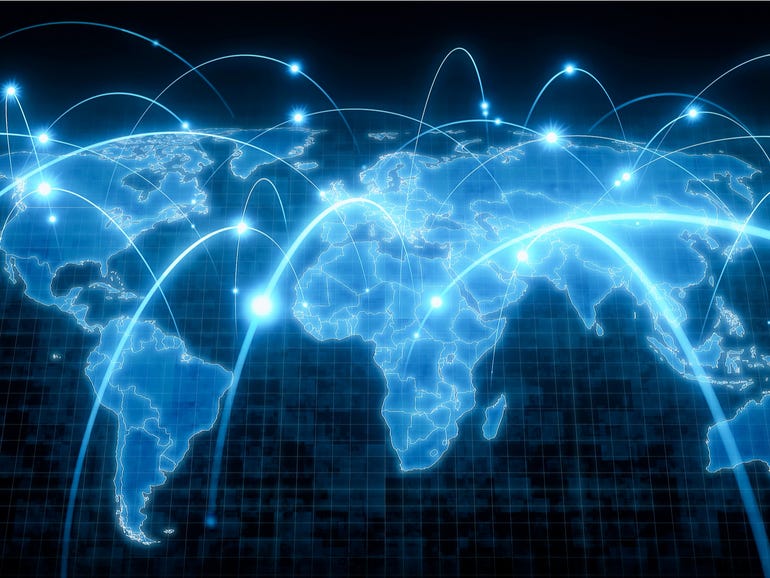- 5 ways you can plug the widening AI skills gap at your business
- Forget AirTag: This Bluetooth tracker is my top pick for both iPhone and Android users
- This midrange robot vacuum cleans as well as some flagship models - and it's 50% off
- You may qualify for Apple's $95 million Siri settlement - how to file a claim today
- This 3-in-1 robot vacuum kept my floors clean all season, and it's priced to compete
Russia remains connected to the internet | ZDNet

After Russia invaded Ukraine, Ukraine asked the internet governing groups to cut Russia off from the internet. These bodies, including the Internet Corporation for Assigned Names and Numbers (ICANN), refused. Two of the main backbone internet providers, Lumen Technologies and Cogent, indicated they would sever Russia’s internet ties. Their actions speak louder than their words though. Internet analysis company ThousandEyes has shown that Russia’s backbone Internet connectivity remains pretty much the same as ever.
In other words, Russia has not been disconnected from the net.
Ironically, the most significant interference with Russians reaching the world via the internet doesn’t come from outside Russia but from within Russia itself. Russia has blocked Facebook, Twitter, and Instagram.
Russia is also trying to set up its own alternative to the Domain Name System (DNS). This is the internet’s universal address system. Russia is also attempting to create its own TLS certificate authority (CA). These certificates are essential for ensuring there are secure connections between web browsers and sites. Russian companies and agencies, however, can’t renew CAs now from Western countries. The rub, however, is that CA certificates must be trusted to work. And the only web browsers that regard these new CA certificates as trustworthy are Russia’s Yandex browser and Atom products. Good luck getting these to work with Chrome, Firefox, or Edge.
But, as for Russia’s actual major internet connections, they’re still working just fine. According to ThousandEyes, “Russia’s connection to the rest of the world via these vital networks remains intact, with major Russian ISPs, such as JSC Rostelecom, continuing to peer with global transit providers outside of Russia, just as they did long before recent events. As a result, the Russian people continue to have access to the global Internet — at least at an infrastructure level.”
That’s not to say that Russian internet sites haven’t been hit by distributed denial of service (DDoS) attacks. They have been.
But, Russian sites have largely remained up in the same way that they stay up in the West when they’re attacked: By using content delivery networks (CDN)s such as those from Cloudflare and Akamai.
These CDN companies continue to operate in Russia because, as Cloudflare CEO Matthew Prince wrote, “Russia needs more internet access, not less… we’ve seen a dramatic increase in requests from Russian networks to worldwide media, reflecting a desire by ordinary Russian citizens to see world news beyond that provided within Russia.”
Russian sites are also protecting themselves from attacks by ISP traffic blackholing. As the name suggests, this works by routing potentially malicious network traffic into a “black hole.”
If you’re outside Russia trying to reach a Russian site, you’re more likely to have trouble connecting. Within Russia, working with Russian websites continues pretty much as normal.
But, for the million-ruble problem of Russians connecting to the outside world, despite what’s been said, the backbone connectivity is still up and working. That’s because Cogent and Lucent, along with many other global transit providers, such as TeliaNet and Telstra, continue to peer with major Russian Internet Service Providers (ISP)s via transit points outside Russia proper.
That said, at ThousandEyes points out, “just because network connectivity persists between Russia and the rest of the world, as it does with China, that doesn’t mean that the Internet experienced by Russian users mirrors that of the rest of the world — or that users outside of Russia have unfiltered access to websites served from inside of Russia.” The Russian government ultimately controls much of Russian citizens see, and don’t see, on the net. In effect, it is creating a virtual internet prison.

